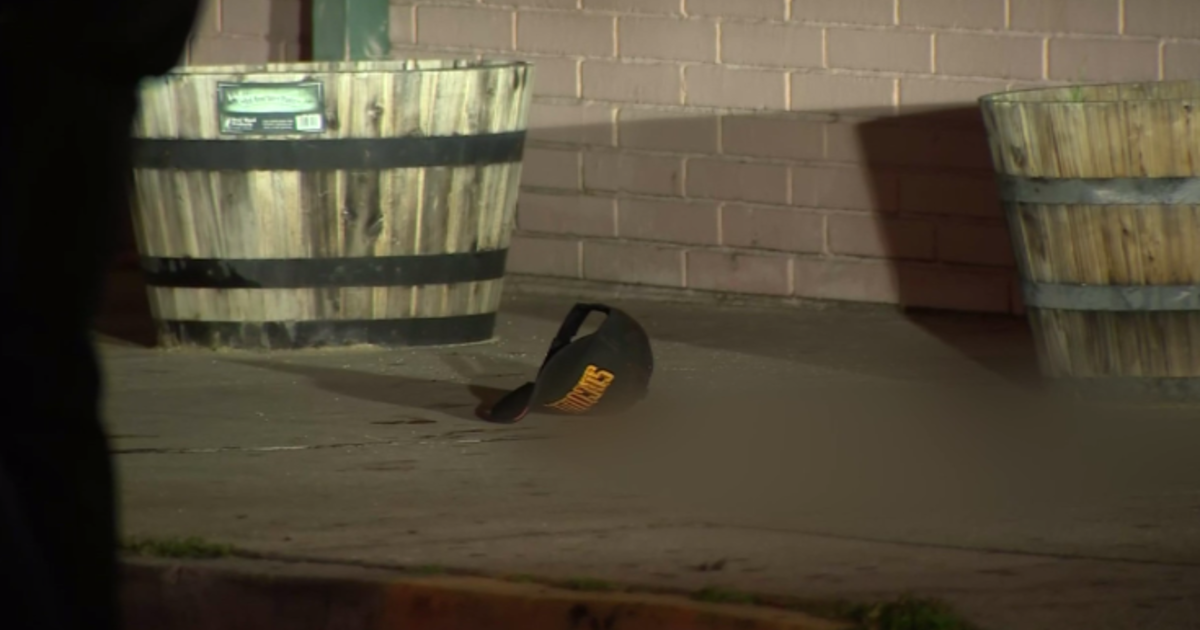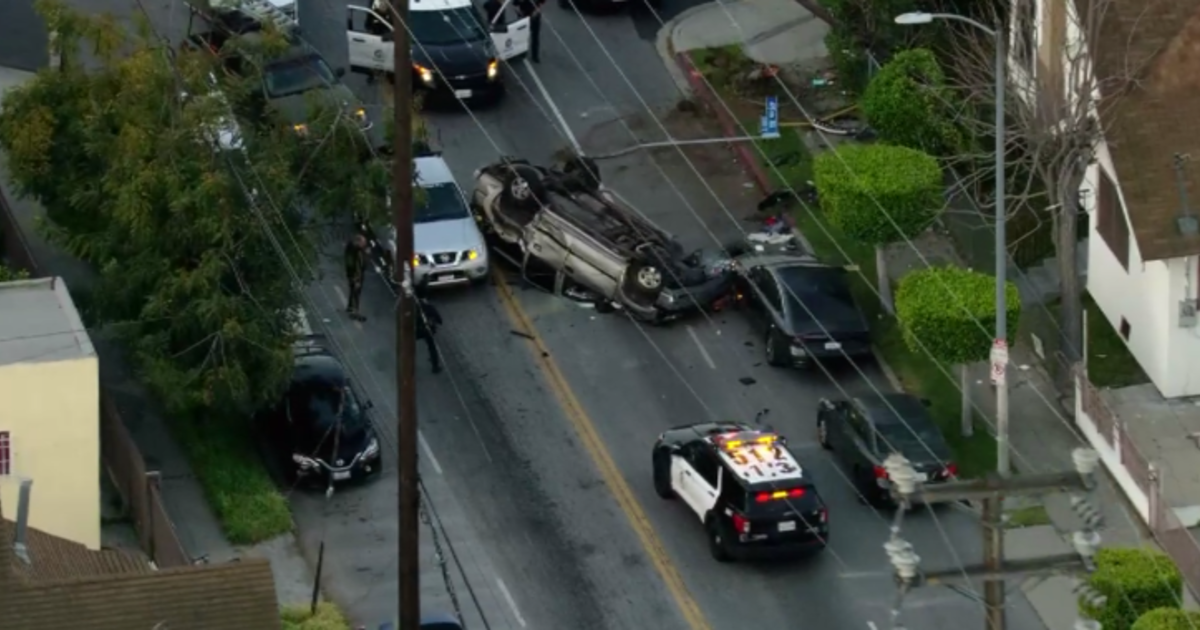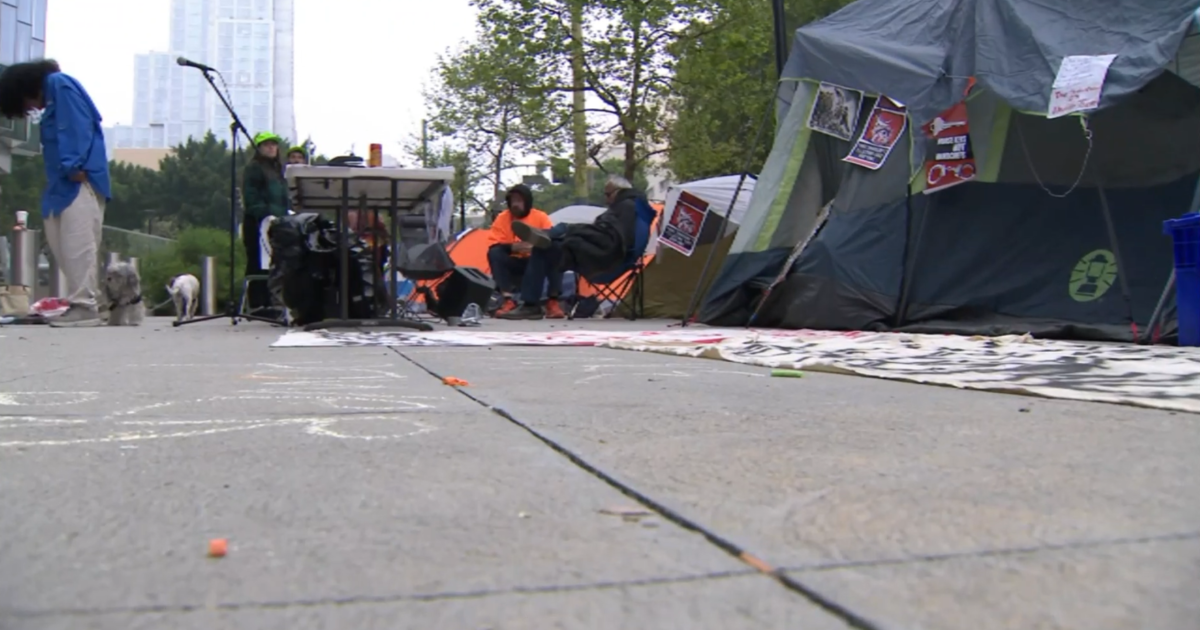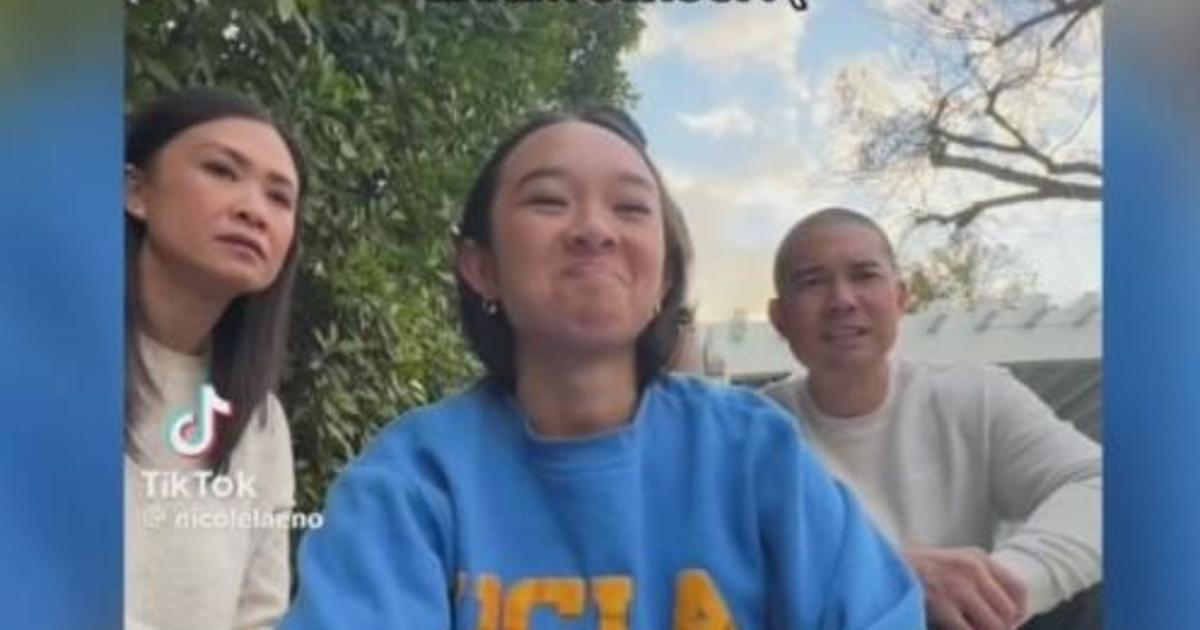LAPD Officers Say Commission's Ezell Ford Ruling Hasn't Influenced Their Policing
LOS ANGELES (CBSLA.com/AP) — The Los Angeles Police Commission's ruling this week in the Ezell Ford shooting has raised new questions about policing in L.A.
Craig Lally, president of the Los Angeles Police Protective League, the union for officers, has said some members have changed the way they operate, including making fewer observational stops, if at all.
"They're very worried if they make a mistake," Lally said. "They'll get that radio call, they'll respond as quickly and safely as possible, but, the days, in their minds, several officers say, 'I'm not making that observation arrest anymore. Why should I?'"
Lally said it would make officers more tentative on the beat.
Officers who spoke with CBS2/KCAL9's Cristy Fajardo say nothing has changed.
"[Officers] will be out in the streets and they will be doing their jobs," LAPD Sgt. Barry Montgomery.
In fact, the LAPD on Friday brought officers back to the foot beat in Chinatown.
"I'm not seeing a reduction in productivity," said LAPD Sgt. Mike Flanagan, who says there are policies and procedures, and consequences for officers who don't carry out their duties. "It's basically in their DNA to be police officers. And that's what they want to do: they want to come out here and they want to be police officers."
On Tuesday, the L.A. Police Commission, an independent panel which oversees the LAPD, found Officer Sharlton Wampler acted out of policy the night Ford was killed. He was unarmed, and suffered from mental illness, and community activists believe he was targeted because he was African-American.
The commission found Wampler's partner, Officer Antonio Villegas, was wrong to draw his weapon but acted appropriately in firing it because he believed Wampler's life was in danger.
During hours of emotional public testimony before the panel's vote, Ford's mother, Tritobia Ford, urged commissioners to find the officers' actions improper, saying her mentally ill son had the thought process of an 8- or 10-year-old.
She said she was pleased with the eventual decision but urged the district attorney to bring criminal charges, saying she will "ask those who killed my precious boy be brought to justice."
Los Angeles Police Chief Charlie Beck and the department's internal watchdog unit previously found the officers acted appropriately. It is now up to Beck to decide on punishment for the officers.
In a statement late Tuesday, the chief said, "I respect the process and the decision made."
Lally called the commission's decision "purely political and self-serving."
The shooting of Ford prompted months of peaceful protests in Los Angeles. The demonstrations have been far smaller than those that erupted in Ferguson, Missouri, and Baltimore following the deaths of black men after encounters with police.
Unlike Ferguson, where the officer was white, the Los Angeles shooting involved minority officers — Wampler is Asian and Villegas is Hispanic.
Ford was walking on a sidewalk in August when the officers spotted him. The Los Angeles commission's report said the officers decided to stop Ford because he appeared nervous and was walking away with his hands in his pockets.
Wampler thought Ford may have been hiding drugs and told him to stop so they could question him. The officers said Ford looked in their direction and walked away quickly with his hands in his waistband area.
They approached Ford, and Wampler tried to handcuff him. A struggled followed, and Ford knocked Wampler to the ground and grabbed for his weapon, according to the officers. Villegas fired two shots, and Wampler pulled out a backup gun and shot Ford in the back.
The commission found that since Wampler violated policy with his initial efforts to stop Ford, the shooting was not justified even though he may have had reason to fear for his life.
That finding was based on an updated use-of-force policy for the Los Angeles Police Department. The change was made last year to better mirror language in a California Supreme Court decision that requires investigators to consider whether wrong initial decisions by officers ultimately caused confrontations that ended in the use of deadly force.
The commission looked at the totality of circumstances, not just the moment deadly force was used, and it found that "deficient tactics used by (Wampler) and the legally inappropriate detention of (Ford) led to the subsequent altercation, rendered the use of deadly force unreasonable and out of policy."
Steven Lerman, a lawyer who represents Ford's family, said he believed both officers acted outside policy.
"It is a pitiful example of police gone wrong," Lerman said. "They never should have stopped the guy."
An attorney representing the two officers could not be reached for comment.
The ACLU of Southern California said in a statement Wednesday that the public should know the details of an investigation when police kill someone, not just receive summaries.
"The full Ezell Ford investigation should be made public," it said. "The commission's deliberation and decision should have been made in public. And the discipline imposed on the officers also should be public. Because California law bars the release of that information to the public, California law must be reformed."
(TM and ©Copyright 2015 CBS Local Media, a division of CBS Radio Inc. and its relevant subsidiaries. CBS RADIO and EYE Logo TM and Copyright 2010 CBS Broadcasting Inc. Used under license. All Rights Reserved. This material may not be published, broadcast, rewritten, or redistributed. The Associated Press contributed to this report.)



